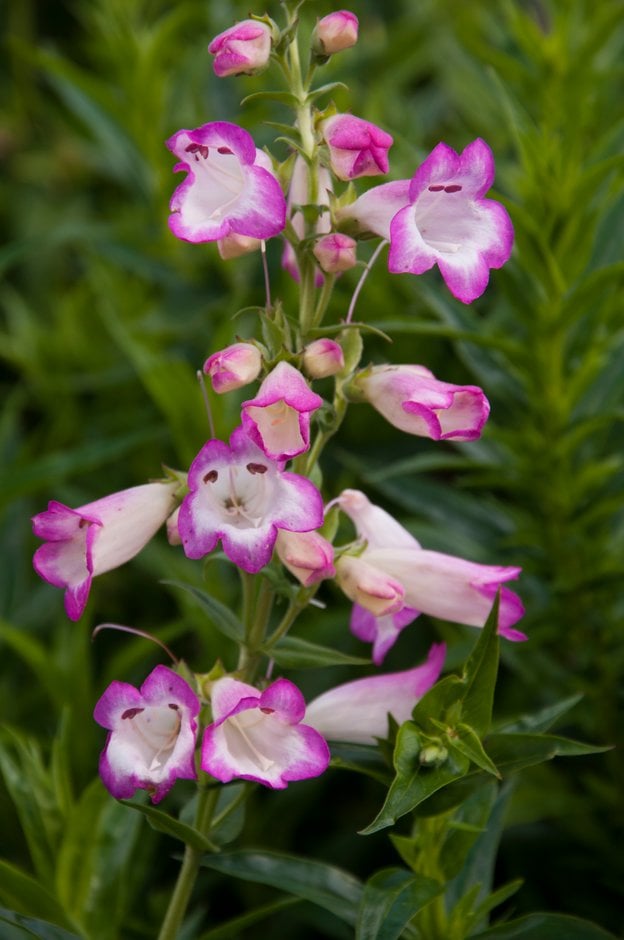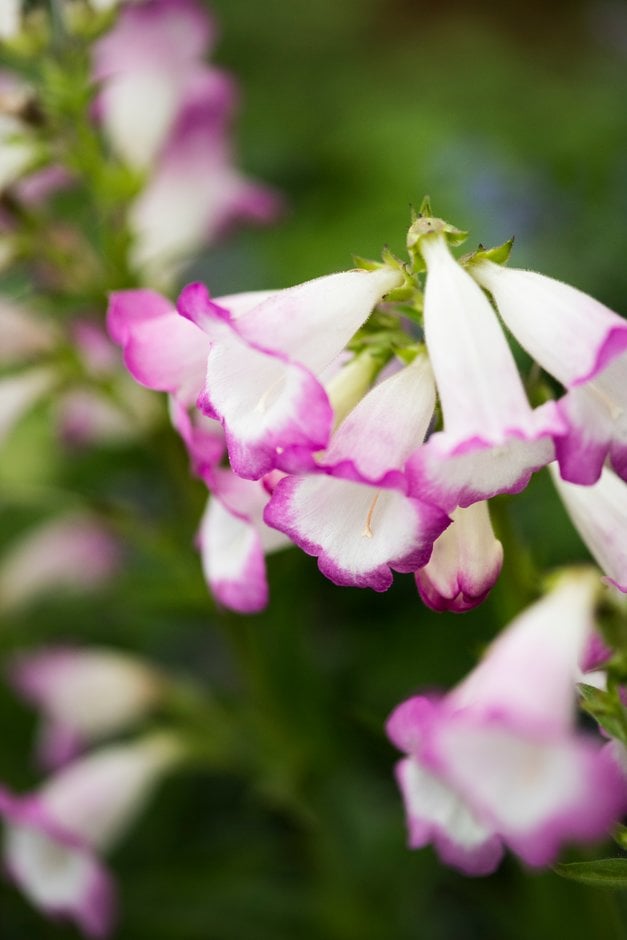Size
Ultimate height
0.5–1 metresTime to ultimate height
2–5 yearsUltimate spread
0.1–0.5 metresGrowing conditions
Moisture
Well–drainedpH
Acid, Alkaline, NeutralColour & scent
| Stem | Flower | Foliage | Fruit | |
| Spring | Green | |||
|---|---|---|---|---|
| Summer | Pink White | Green | ||
| Autumn | Pink White | Green | ||
| Winter | Green |
Position
- Full sun
- Partial shade
Aspect
East–facing or South–facing or West–facing
Exposure
Exposed or Sheltered Hardiness
H4Botanical details
- Family
- Plantaginaceae
- Native to GB / Ireland
- No
- Foliage
- Semi evergreen
- Habit
- Clump forming
- Genus
Penstemon may be deciduous or evergreen perennials or subshrubs, with simple, narrow leaves and racemes or panicles of bell-shaped or funnel-shaped flowers in summer and early autumn
- Name status
Unresolved
How to grow
Cultivation
Grow in fertile, well-drained soil in full sun or partial shade. In cold areas, protect plant overwinter with dry winter mulch see Penstemon cultivation for more details
Propagation
Propagate by softwood cuttings in early summer and semi-ripe cuttings in midsummer.
Suggested planting locations and garden types
- Cottage and informal garden
- City and courtyard gardens
- Coastal
- Gravel garden
- Patio and container plants
- Wildlife gardens
- Flower borders and beds
- Wall side borders
Pruning
Deadhead after flowering to maintain vigour. Then cut back in spring - see penstemon cultivation
Pests
May be susceptible to slugs, snails, glasshouse red spider mite, and leaf and bud eelworms
Diseases
Generally disease-free, but may be susceptible to powdery mildews
Get involved
The Royal Horticultural Society is the UK’s leading gardening charity. We aim to enrich everyone’s life through plants, and make the UK a greener and more beautiful place.

